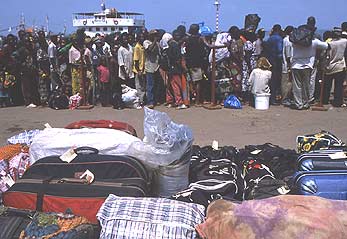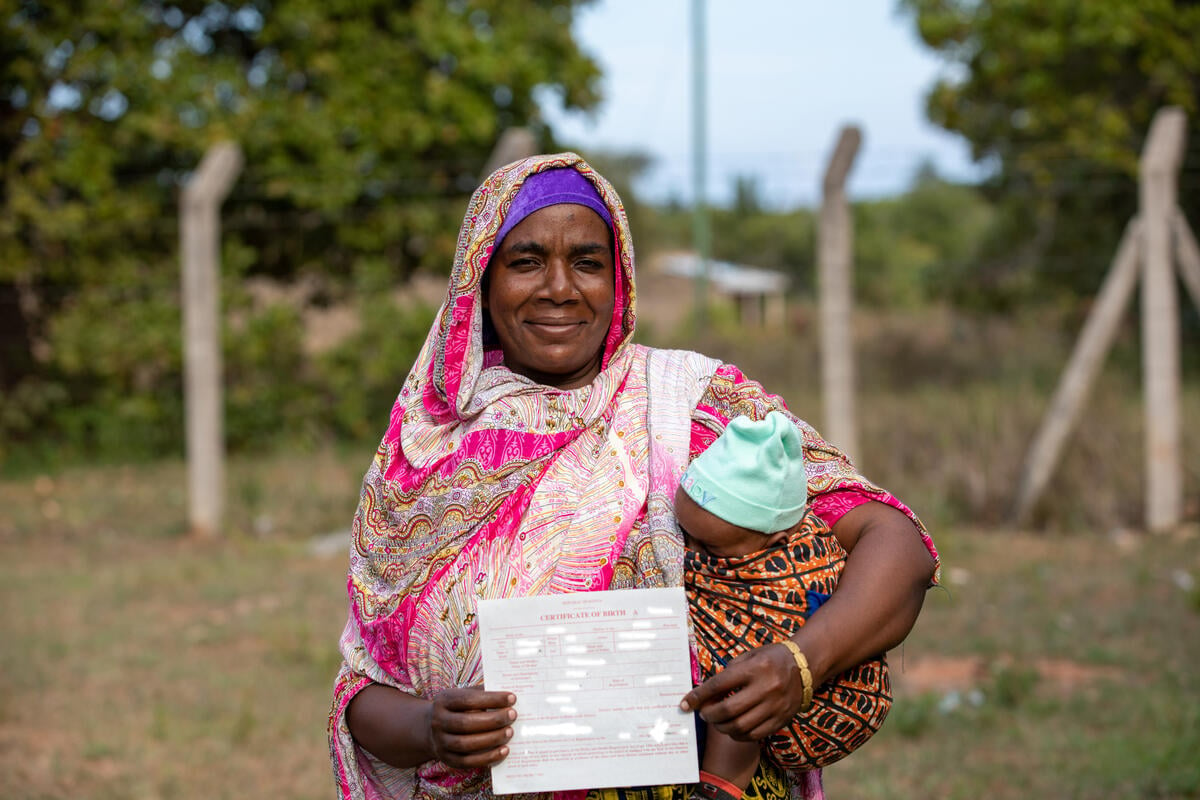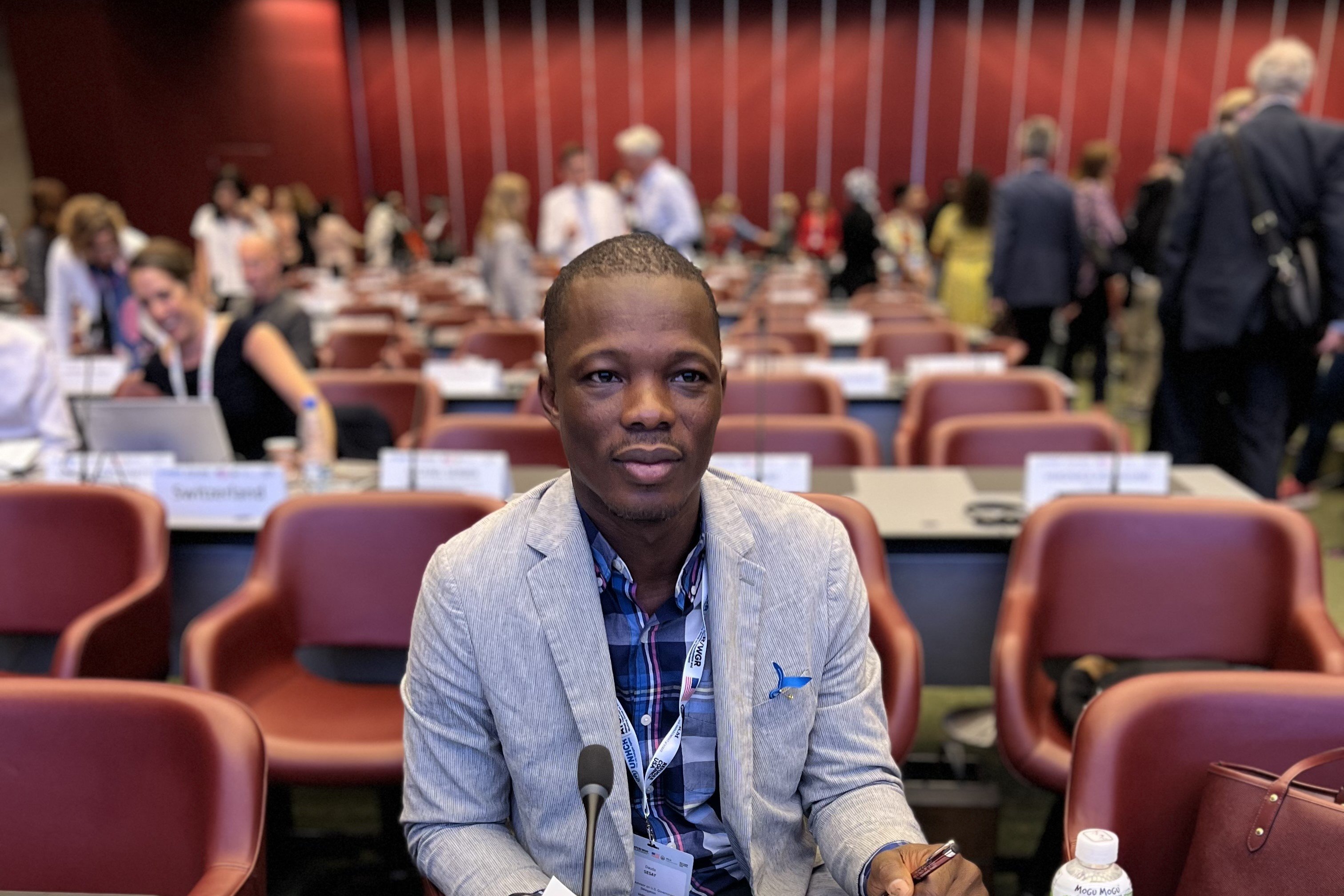Home for the elections in Sierra Leone
Home for the elections in Sierra Leone

Sierra Leonean refugees voting with their feet to go home for the polls.
KAILAHUN, Sierra Leone, May 14 (UNHCR) - As people all over Sierra Leone go to the polls today, many of the country's refugees have already voted - with their feet - for the future of their homeland.
"My family is still in Guinea but I wanted to come home to vote and to prepare our house," said Winde Kenema, who fled a turbulent Sierra Leone in 1991 and recently returned to his hometown in Kailahun.
Asked whom he would vote for, he shook his head and said, "I have learnt to be careful, but I am sure to vote for the right man. I am voting for my future."
Winde is among the many Sierra Leonean refugees who have come home for the elections. This vote of confidence comes after 11 years of civil war that sent hundreds of thousands of people fleeing into West Africa. Some 135,000 Sierra Leonean refugees are still hosted in Guinea and Liberia.
Close to 90,000 have been assisted to return to Sierra Leone from Guinea and Liberia since December 2000. Others have returned spontaneously despite continuing security concerns in parts of the country.
"If we had had the money, we would have made our way home earlier, by ourselves. We didn't, and so we wrote a letter to the embassy of Sierra Leone, which then informed UNHCR," said returnee Stephen Musa, who was on the last organised convoy before the elections from Liberia's Dolo's town to Sierra Leone in late April.
He spent the past 10 years in Liberia moving from place to place with his wife and four children, and was excited about returning to his home in Kailahun district, one of the most destroyed areas in Sierra Leone.
Many are returning to great uncertainty. "With the grace of God, I will see my husband again," said Mojema, also back from Dolo's town. She was separated from her husband and three children in Freetown when she and her other daughter went to visit her mother in Daru four years ago. Fighting broke out and the road between Daru and Freetown was blocked. She headed straight to Liberia, where a kind man took her in.
"I will go to Daru first to see my mother," she said upon her return. "From there I will send a message to Freetown to find out if my husband found another wife. If he did, I will return to Dolo's town."
Yet others are too young to remember their homeland. "I was 6 years old when the rebels entered Pujehun, said Moses, now 22. "My uncle was killed in front of me. That is all I remember from Sierra Leone." But as the return convoy pulled into Sierra Leone, he said with a smile, "I am back, and it feels great."
For many of these returnees from Liberia, the journey to their home villages in Sierra Leone took three to four days. Along the way, UNHCR distributed to them kitchen sets, plastic sheeting, tarpaulins, blankets, lamps and other basic items needed to survive in the initial months, the same package distributed to those returning from Guinea. Where the refugee agency could not send them to their home villages, some were given travel allowances to continue the journey on their own.
"This is the last return convoy we will do before May 21," said Anne Gagnepain, field/protection officer in Monrovia. "Operations in the sub-region will be stopped while Sierra Leone prepares for the elections." She added that so far, UNHCR has facilitated the return of over 10,000 Sierra Leoneans back home from Liberia.
The elections will likely be a test of Sierra Leone's fragile peace, but it is bolstered by the returnees' vote of confidence. "A new beginning is always hard," said Winde as he tried to rebuild his burnt house in Kailahun. "But at least I am home."









